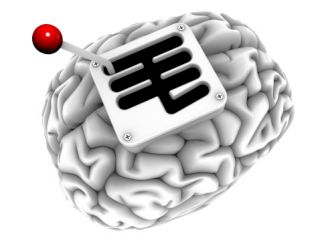Neuroplasticity
The Neuroscience of Vitality, Tip 1: Neuroplasticity
Neuroplasticity means we can change our brains!
Posted July 3, 2014

As a practicing psychiatrist, I have gathered my top seven neuroscience tips for vitality that have proven to be useful for virtually all of my patients, and I am eager to share them with you. Today, I'll talk about one of the best findings in neuroscience: Our brains are neuroplastic!
Neuroplasticity means that our brains can change, even in adulthood. So you really can teach an old dog (over 25 years old) a new trick, it’s just quite a bit harder than teaching a puppy (under 18).
Studies have shown that to rewire your brain in adulthood, you need multiple hours of practice most days of the week. Pessimists can become optimists, English speakers can learn new languages, adults can learn new professions and hobbies, and the list goes on and on. The key is frequent repetition. Your brain is no longer a sponge but with practice it can still make the changes you are asking it to.
Neuroplasticity occurs when we fall for that special person in our life and again when we fall in love with our children. We are designed to change our brains in fundamental ways during these developmental steps. Do you remember that surge in self esteem that occurred when you first fell in love? Who can ever forget the first time they saw their child? We must rewire our brains in order to develop the ability to care for our loved ones. We must “learn” to put their needs before ours. This reorganization, them before me, is the essence of neuroplasticity. The oxytocin and vasopressin that are secreted when we fall in love actually allow our brain to change.
Love has always seemed to have a magical component allowing us a period of rapid transformation and now neuroscientist have identified the chemical creating the magic. Changing our brain at key developmental steps is essential to our survival. Infants are so helpless for so long and would never survive infancy if we didn’t attend to their needs first. So the brain of the newly minted parent must change in order to put someone else’s needs first. The process of falling in love with our newborn actually rewires our brain. Makes sense, doesn’t it!
So, if you want to incorporate something new into your life, the best way is to fall in love (or, reignite the love you already have!). We must fall in love with ourselves, our abilities and our activities to reach our maximum potential. Now you know why “passion” is so empowering. We are literally falling in love with the activity and in the process creating a neurochemical environment for your brain that optimizes learning.
Psychotherapy has been shown to rewire the brain, and many have described the psychotherapeutic process as "falling in love" with one’s self for the first time. Self love is indeed a powerful healer as we learn to see ourselves in a favorable light.
Recommended reading: The Brain That Changes Itself by Norman Doidge M.D


